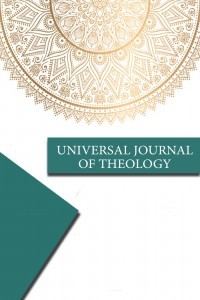Ruh ve kalp sistemi ve alkışlarla ilişkisi
Beşeriyetin yaşadığı tüm teknik gelişmelere ve maddi ilerlemelere rağmen, tıp ve beşeri bilimlerdeki araştırmaların ilerlemesiyle birlikte, insan davranışlarını ve algısını yöneten sistem bugüne kadar bilinmemekte olup, modern bilim, ileri teknolojileri ile bunu başaramamıştır.
Algılarını ve eylemlerini yöneten ve daha sonra davranışlarını daha iyiye yönlendiren insanın zihnini kontrol etmedi.
Eski ve modern âlimlerin, müfessirlerin, filozofların ve müfekkirlerin görüşleri, insanı yöneten otoriteye ilişkin yorumlarında, teorilerinde ve varsayımlarında farklılık göstermiştir: Ruh mu? yoksa nefis mi? Yoksa karmaşık ve örtüşen bir sistem mi?
Buna göre ruh ve ruh tanımları farklılaşmıştır; Bu nedenle, insan davranışlarını yöneten o sistemin veya bedenin, din ve şeriat ilimleri açısından, tabiat ve tecrübî ilimlerin yapamadıklarını tedavi edecek şekilde mantıklı bir izahı hakkında konuşmaya ihtiyaç ortaya çıkmıştır. Yazar, bu araştırmada insan varlığını oluşturan bir çok önemli unsura, yani ruh, nefis ve bedene ışık tutmuş ve bunları ünlü bilim adamları ve büyük antik ve büyük bilim adamları tarafından yazılan betimleyici ve tümevarımsal yaklaşıma dayalı olarak tanımlamıştır. Ayrıca, insanı yönlendiren ve ruh ile nefis arasındaki ilişkiyi, davranışları ve eylemleri için ve onu tavsiye edebilir ve davranışını değiştirebilir ve tezkiye edilebilir olmasını açıklayıp tümdengelim yaklaşımına dayanarak Kur'an ve Sünnet metinlerinden alınan bazı ilgili görüşleri ortaya çıkarmıştır.
Anahtar Kelimeler:
Nefis - Ruh, - Tezkiye -Nefsin temizliği, Kalbin hazırlığı – Akıl
The system of the soul and heart and its relationship to acclamation
With the technical development and paradigm shift of the era of science, atom, space and discoveries, and with the progress of research in medicine and human sciences, the system that governs human behavior and perception is still unknown until now. And his behavior, so there was an urgent need to talk about the logical explanation of that system or the body that governs human behavior from the point of view of the sciences of religion and Sharia.
This research deals with the definition of the set of moral elements that make up the human being and their relationship to each other in how to influence behavior, its patterns and variables, and the actions and behaviors that emerge from it.The researcher shed light on a number of important elements that make up the human entity, including: the soul, the soul, the heart, the body, and he defined the moral elements based on the descriptive analytical approach, as well as the deductive approach in some texts of the Holy Qur’an and the purified prophetic hadiths. In the results of the research, the researcher reached an abstract formulation of that legal system that leads man and is responsible for his behavior and actions.
Keywords:
the soul - purifying, liberation, - the mind – disinfection,
___
- -Muslim’“ ibn al-Hajjaj al-Nisaburi al-Qushayri (204 AH-261 AH), Sahih Muslim (The Sahih Mosque), investigated by Muhammad Fouad Abdel-Baqi, House of Revival of Arab Heritage - Beirut, second edition 1392 AH - 1972AD.
- -Ibn Hanbal, “ Ahmed bin Muhammad T: 241 AH, Musnad of Imam Ahmad bin Hanbal, Hadith Encyclopedia - the version under the supervision of Dr. Abdullah Al-Turki, first edition, 1416 AH, 1996 AD. And the copy of the Heritage Investigation Office at the Al-Resala Foundation, Beirut - first edition, 1421 AH, 2001 AD.
- -Al-Ghazali“, Abu Hamid Muhammad bin Muhammad Al-Ghazali Al-Tusi, d.: 505 AH, Revival of Religious Sciences, investigation: Al-Hafiz Al-Iraqi Abdul Rahim bin Al-Hussein bin Abdul Rahman, T.: 806 AH, Beirut, Dar Al-Maarifa, (d. T).
- -Al-Jawziyah, “Muhammad bin Abi Bakr bin Ayyub bin Saad Shams Al-Din Ibn Qayyim Al-Jawziyah, The Spirit in Speech on the Souls of the Dead and the Living with Evidence from the Qur’an and the Sunnah (751 AH). Scientific Books - Beirut.
- -Al-Jawziyah, “ Muhammad bin Abi Bakr bin Ayoub Al-Zar’i Al-Dimashqi Al-Hanbali, known as (Ibn Al-Qayyim Al-Jawziyya), the sufficient answer for those who asked about a cure or disease and medicine. The Science of Jeddah, 1st Edition 1417-1996. -Archive of Ahl Al-Hadith Forum.
- -Gazali: "Filozofların Tutarsızlığı", Araştırmacı: Dr. Süleyman Donia, Baskı: Altıncı, Dar Al-Maaref, Kahire - Mısır, tarihsiz. -Muhammad bin Ismail Al-Bukhari, The Sahih Al-Musnad from the hadith of the Messenger of God, his Sunnah and his days, Publisher: The Salafi Library - Cairo, Edition: The first year of printing: 1400 AH.
- -Al-Tirmidhi, “Muhammed bin Issa bin Surah bin Musa bin Al-Dahhak, Al-Tirmidhi, Abu Issa, Sunan Al-Tirmidhi, “ araştırma ve yorum: Ahmed Muhammed Şakir (cilt 1, 2), Muhammed Fouad Abdel-Baqi ( bölüm 3) ve İbrahim Atwa Awad, Al-Azhar Al-Sharif'te öğretmen ( A4, 5) Yayımcı: Mustafa Al-Babi Al-Halabi Kütüphanesi ve Basın Şirketi - Mısır Baskısı: İkinci.
- Başlangıç: 2016
- Yayıncı: İsmail ŞİMŞEK
Sayıdaki Diğer Makaleler
Renê Guênon’un Gelenekselci Düşüncesinde Bütüncül İnsan Anlayışının Modern Dünyadaki Yeri
Zeynep AKGÜL, Ruhattin YAZOĞLU
Nahiv İlminde İhtisar Geleneği, Teftâzânî’nin el-İrşâd Örneği
İbn Hacer el-Askalânî’nin Fethu’l-Bârî’sinde Hâfız el-Ezdî’ye Tenkitleri -Tahlîlî bir çalışma-
İbn Cinnî’nin el-Hasâis İsimli Eserinde Nahvî Hüküm
Kurucu İmama Muhalefetin İmkan ve Sınırı -Hanefî Mezhebi Örneği-
DAMAD EFENDİYE GÖRE FIKHÎ VE USÛLÎ KAİDELERLE DELİLLENDİRME
Badran Thaeer Abdulqader QUMRI
Ruh ve kalp sistemi ve alkışlarla ilişkisi
دور الفطرة والغريزة في الأخلاق دراسة تحليلية من وجهة نظر إسلامية
